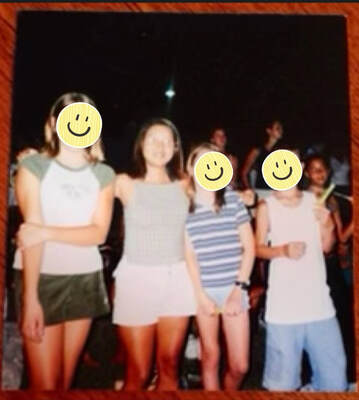|
It was 1998. I was teaching 5th grade, and my students adored Britney Spears. OK, OK… I’ll admit I was a bit of a Britney Spears fan-girl myself, and was pretty happy when my then-boyfriend/now-husband gifted me a “Baby One More Time” CD for Christmas. One of my fondest memories is when, at the end of that school year, three of my students presented my end-of-year gift -- a ticket to the Britney Spears concert -- which I attended with them (and their parents!). At the Britney concert with three of my 5th grade students! Their parents even came to pick me up! The New York Times Presents | Framing Britney Spears The other day, I watched the documentary, The New York Times Presents | Framing Britney Spears and have not stopped thinking about it since. It chronicled the rise of Britney Spears’ career, her (mis)treatment by the media, and the current challenges she faces with conservatorship which has led to an energetic call to #FreeBritney. It made my heart truly ache for Britney Spears. It was weird looking back on the events, remembering them so clearly, as well as my reactions at the time. To me back then, Britney’s hardships were just bits of pop gossip -- something to laugh at, poke fun of, then go back to my normal life. I remember when Britney stated publicly that she wished to remain a virgin until marriage. I remember when Britney and Justin broke up, and he announced his sexual experience with Britney to the world. I remember when an interviewer told Britney that everyone was talking about her breasts. I remember when she shaved her head, when she umbrella-bashed the photographer’s car, and when she was involuntarily taken into medical custody. Watching the documentary, I felt ashamed of my lack of empathy for my fellow human back in the early 2000s, as I devoured the media gossip just like everyone else -- without consciousness. The show also illuminated my acute lack of media literacy and understanding of how media shapes the world. I didn’t know what I didn’t know. A Case for Media Literacy Media literacy, in a nutshell, involves understanding and assessing the messages (and the impact of those messages) sent via various media formats. Media literacy requires an understanding of language, bias, emotion, and context; an individual with strong media literacy also examines his/her own tendencies in media consumption. Media literacy also involves thoughtful media creation. Because technology and social media have amplified the spread of media and “fake news” (i.e., misinformation) it’s easy to think of media literacy as a “digital-age” problem. The truth is, while it may be more visible now, the need for media literacy is not new, and media literacy skills apply to print media as well as digital media. Now… getting back to Britney Spears. If I had stronger media literacy skills back in the day, I would have noticed how interviewers were speaking differently to her, and asking different questions than they were to male pop stars. I would have noticed the bias built into her interviews and their contribution to unequal gender treatment.
If I had stronger media literacy skills back in the day, I would have been far more cognizant of how MY/OUR media consumption habits drove what was published. That a popular icon’s downward spiral turned into the headline of the week -- and because they sold magazines, those sensationalized headlines and shocking photos taken out of context (2000s version of “clickbait”) drove the paparazzi to extreme and dangerous measures that some may argue further contributed to Britney’s decline. If I had stronger media literacy skills back in the day, I would have realized that much of what I was reading was pure garbage. That when a “source close to Britney” (rather than a named source) tells all, it’s likely to have been made up. And that when a sentence in an article ends with a question mark, it is also likely to be untrue. I would have more consciously realized that the tabloids were simply serving up what we were purchasing. Digital Citizenship When we help our students to think critically about media and its messages, we help them gain important skills they need to navigate both print AND digital media. We help them interpret, analyze, and make decisions about how they will interact with that media, as well as empower them to consider how they can contribute to a given cause. After watching the Britney Spears documentary, I can see how (after removing the words “online” or “digital”) each of the following digital citizenship indicators were violated by me and my fellow pop-gossip reading peers of the early 2000s:
While I wrote this post as a reflection of my own digital citizenship and media literacy awareness, I also hope that it illustrates the ever-present and ongoing need to teach media literacy as a critical part of the curriculum. How might we elevate these skills by embedding them into existing curriculum? I’d love to hear your thoughts and extend the conversation to strengthen media literacy education. I also want to extend my very best to Britney Spears and her ongoing challenges. Cheers, LeeAnn
0 Comments
Leave a Reply. |
AuthorI care deeply about helping educators cultivate healthy environments where every student and teacher can learn, grow, and thrive in this digital world! |



 RSS Feed
RSS Feed
